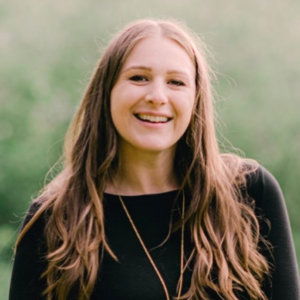Christine Witcher is a co-founder of Floop and has been using it since conception. She is a technology and innovation specialist for grades 5-12, teaches middle school science, and manages a makerspace at Forest Ridge School of the Sacred Heart, an all-girls school in Bellevue, Wash.

https://www.linkedin.com/in/christine-witcher-17542724/
–
I wanted to switch my classroom focus to be more inquiry-based and student-driven. I began by flipping my classroom for content delivery in order to maximize our time together. It seemed great at first, but I began to struggle to keep students engaged. I found that they lacked agency over their own learning, many students felt assessments were unfair if questions involved material I did not explicitly teach during class time, and they were still very focused on grades. I felt defeated! I wanted to find a new career. I found colleagues who were struggling with similar issues, and we decided to read “The Power of Feedback,” a research report by John Hattie and Helen Timperley. We learned that frequent and focused feedback was the key to empowering students to take charge of their learning. I decided that adjusting my feedback system was worth a try!
The change to more frequent and focused feedback was not as easy as it sounded. It was incredibly inefficient as it would take days to give thoughtful feedback on each assignment, having anywhere from 50 to 150 at a time. Then, upon returning the assignments to my students, I saw a lot of them tossing my feedback in the recycling bin without reading it! I tried peer feedback as a way to take some of the feedback burdens off of me, but students were worried about being honest and unsure about what aspects of the work they should be giving feedback on.
In the end, I discovered that the bigger problem was that students didn’t know how to give high-quality feedback, and when they received it they didn’t know what to do with it. It was in response to this that we created Floop, a tool that allows teachers to give digital annotated feedback, allows students to respond immediately to the feedback, and facilitates a scaffolded and anonymous peer review session. The goal of using Floop as part of my feedback system is to teach feedback literacy skills, make actionable feedback constantly available, and give students the agency to act on their feedback.
The feedback system that I developed also included time to check in and reflect, to give and get feedback, and to reflect, revise, and resubmit. I instated digital feedback portfolios as a place for students to keep track of their feedback, create action plans based on feedback, and write reflections. These portfolios depicted their learning journey, rather than focusing on the destination. In order to practice giving and receiving feedback to and from others, we would use the Floop scaffolded peer review sessions. And, in the end, students are able to submit work for my feedback, self-assess, and revise and resubmit before receiving a grade. We use Canvas as our Learning Management System and I had to find a way to get students to look at feedback in Floop before looking at their grade in Canvas. I decided to withhold the grade in Canvas until they had fully engaged with the feedback in Floop. Essentially, Floop was for formative work and Canvas was for reporting summative scores. A byproduct of this system is that it also helped shift my students’ focus to growth over grades; an issue that I had been grappling with for years!
Setting up this new feedback system empowered my students with agency over their own learning and helped me regain my love for teaching! I no longer worried about my students feeling assessments were unfair or being disengaged. My room was full of scientific discussions and conversations that don’t just focus on grades.